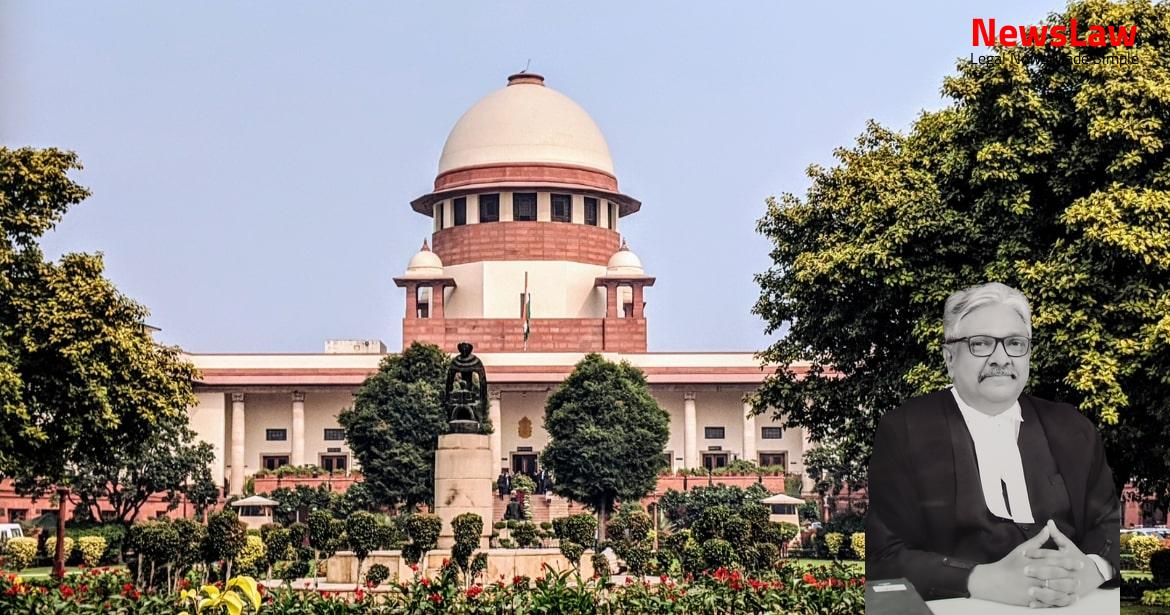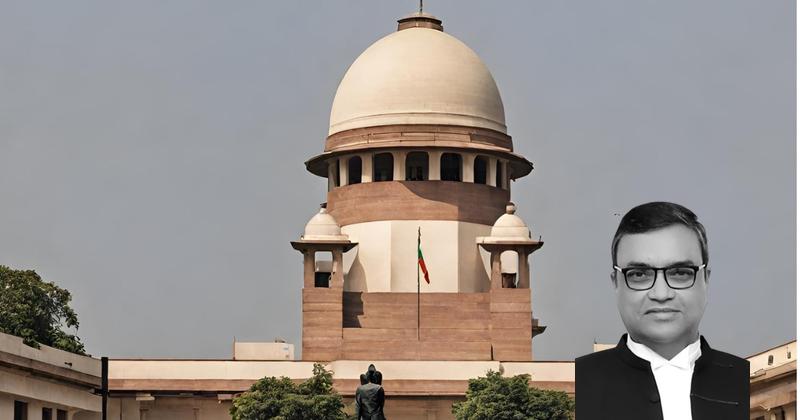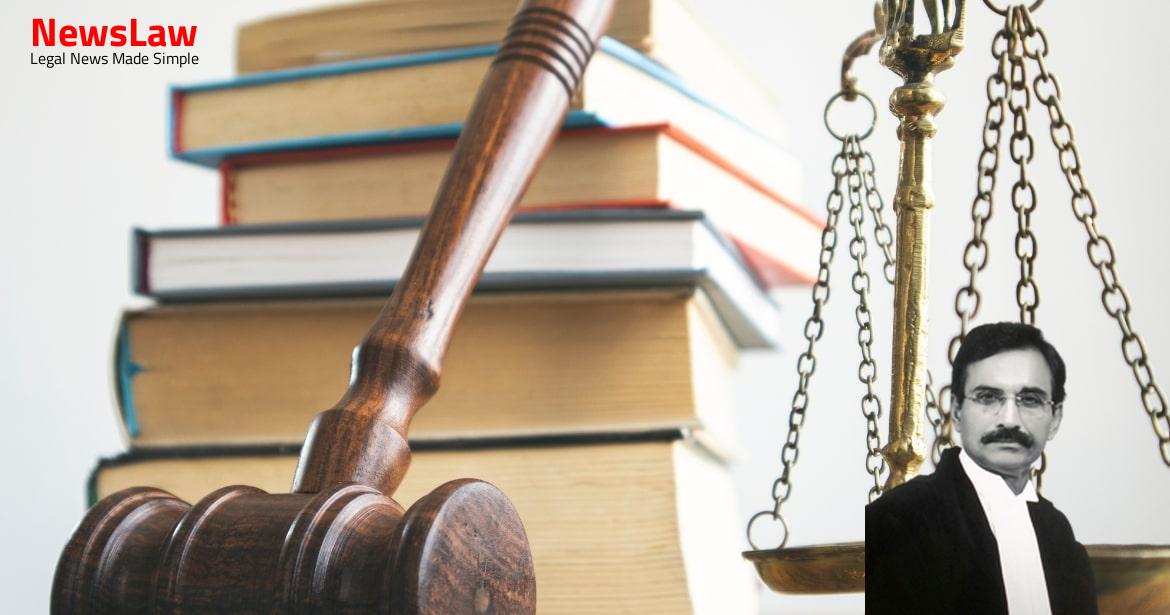Explore the detailed legal analysis conducted by the NCDRC in a case regarding the maintainability of consumer complaints under Section 12(1)(c) of the Consumer Protection Act. The court’s thorough examination of factors such as sameness of interest among consumers and the application of relevant legal provisions sheds light on the complexities of consumer protection law. Stay informed on the nuances of consumer rights and legal proceedings in this insightful case summary.
Facts
- The NCDRC concluded that the application for a composite complaint under Section 12(1)(c) of the Consumer Protection Act was not maintainable.
- The NCDRC based its decision on the differences among the complainants, including separate agreements, different dates of execution, various sizes and costs of flats, different dates of possession offers, and varying amounts claimed in compensation.
- Due to these differences, the NCDRC found no commonality among the complainants and dismissed the joint consumer complaint.
- The NCDRC, however, granted the complainants the liberty to file individual complaints before the appropriate forum.
- The consumer complaint was held not maintainable.
- Liberty was granted to each complainant to file individual complaints before the consumer forum with jurisdiction.
- Judgment of NCDRC led to the present appeal.
- Reliefs sought in writ proceedings before Allahabad High Court included similar aspects as in the consumer complaint.
- Writ proceedings resulted in an order for the Chief Executive Officer to decide on the representation submitted by the complainants.
- Full Bench decision in Ambrish Kumar Shukla (supra) clarified the position of law for NCDRC on 7 October 2016.
Also Read: Legal Analysis on Arbitration Petition Limitation Period
Arguments
- Opposing submissions were made by Mr. Keshav Mohan, counsel for the first respondent, in support of the NCDRC’s conclusion that the complaint was not maintainable under Section 12(1)(c).
- It was urged that the proceedings should be remitted back to the NCDRC to allow the complaint to proceed under the provisions of Section 12(1)(c).
- Mr Keshav Mohan objected to the consumer complaint before the NCDRC mentioning writ proceedings under Article 226 before the Allahabad High Court by the complainants in the case Subodh Pandey and others v State of U P and others.
- The consumer complaint and writ proceedings both concern the same project by the first respondent in Greater Noida, Uttar Pradesh.
- Originally filed by twenty-six complainants, only twenty-one appellants remained after the NCDRC decision.
- The first respondent’s counsel argued that the complaint is not representative under Section 12(1)(c) as some appellants have resolved their grievances by taking possession of their flats.
- The NCDRC did not find Section 12(1)(c) applicable due to different agreements, flat sizes, costs, and compensation amounts for each buyer.
- After the NCDRC decision, it was discovered that only six out of the remaining twenty-one appellants had not taken possession of their flats, indicating that others had resolved their grievances by taking possession.
Also Read: Analysis of High Courts’ Jurisdiction and Court Orders Under Article 142
Analysis
- The application filed under Section 12(1)(c) was not maintainable as it did not fulfill the requirements of sameness of interest among the consumers.
- The NCDRC had dismissed the complaint entirely without considering the possibility of some prayers falling under a sameness of interest.
- The Explanation to Order I Rule 8 of the CPC is significant in determining whether persons have the same interest in a suit.
- The pleadings in the complaint and application did not demonstrate an intent to represent numerous consumers with the same interest.
- The complaint and application focused on the grievances of the twenty-six complainants specifically, without indicating representation for all consumers.
- The NCDRC is directed to reconsider the complaint in light of the sameness of interest requirement and the provisions of the Act.
- The NCDRC should address the objection raised regarding some reliefs being subject to writ proceedings before the Allahabad High Court.
- The provisions of Order I Rule 8 must be interpreted to serve the object of the enactment and ensure representation of all interested consumers.
- Order I Rule 8 of the CPC applies when there are numerous persons with the same interest in one suit.
- A complaint under Section 12(1)(c) can be filed by one or more consumers who have the same interest, with the permission of the District Forum.
- Section 13(6) makes the provisions of Order I Rule 8 applicable when the complainant is a consumer referred to in Section 2(1)(b)(iv).
- In Rameshwar Prasad Shrivastava v Dwarkadhis Projects Private Limited, the relationship between Section 2(1)(b)(iv), Section 12(1)(c) and Section 13(6) of the Act was discussed.
- A complaint under Section 12(1)(c) can only be filed with the permission of the District Forum.
- The expression ‘complainant’ includes one or more consumers with the same interest when numerous consumers are involved in the dispute.
- The Full Bench of the NCDRC in Ambrish Kumar Shukla (supra) dealt with the provisions of Section 12(1)(c).
- Referring to the judgment in T N Housing Board v T N Ganapathy, the Full Bench provided insights on Section 12(1)(c).
- The judgment of the Full Bench of the NCDRC was cited by the two-judge Bench in Anjum Hussain (supra).
- Mr. Madiyal sought liberty to move an application before the NCDRC for amendment of the complaint and to plead the essential requirements of Section 12(1)(c).
- No such application has been made yet.
- The court will not consider anticipatory requests at this stage.
Also Read: Electoral Malpractices in Mayor Election
Decision
- The application under Section 12(1)(c) read with Section 2(1)(b)(iv) of the Act was not maintainable.
- The application was liable to be rejected and stands rejected.
- The NCDRC’s order rejecting the consumer complaint is set aside.
- The consumer complaint is restored before the NCDRC.
- All objections on the maintainability of the complaint are kept open to be addressed and decided by the NCDRC.
Case Title: VIKRANT SINGH MALIK Vs. SUPERTECH LTD (2020 INSC 504)
Case Number: C.A. No.-003526-003526 / 2016



